Soft Power
Galerie Adn, Barcelone, 2017. Avec Virginie Barré, Joséphine et Simone Peinado-Barré
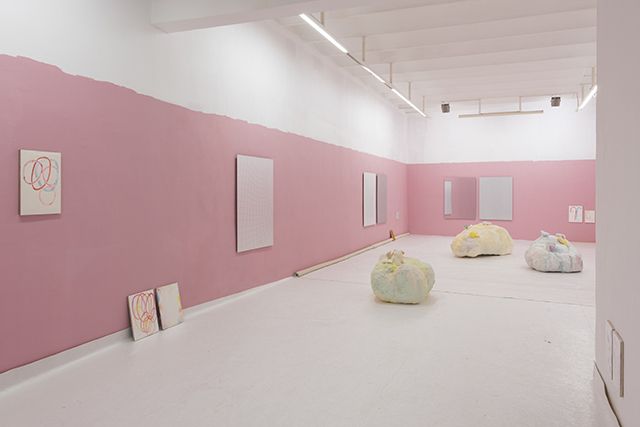
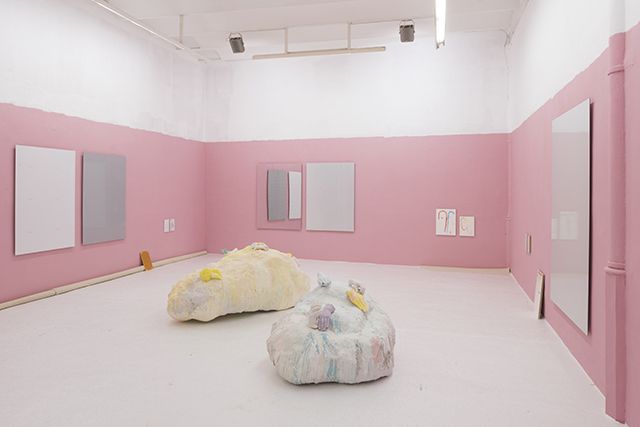
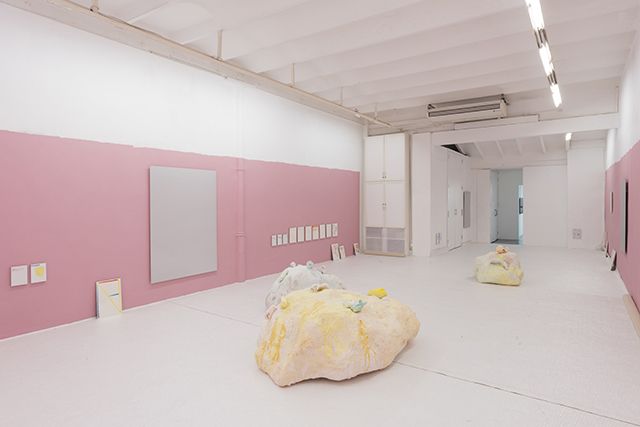
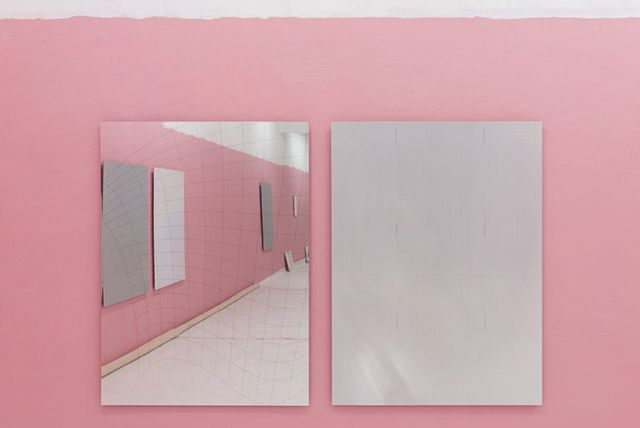
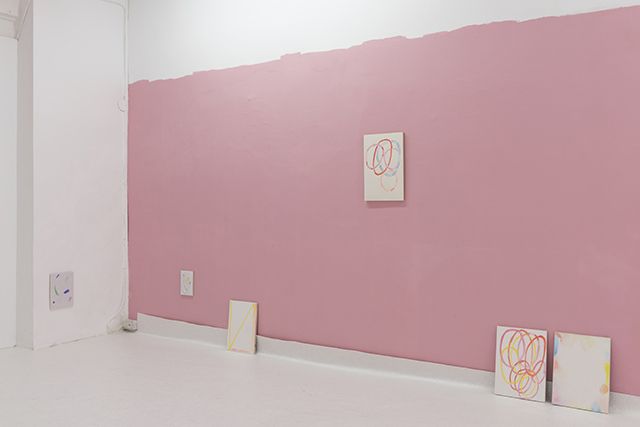
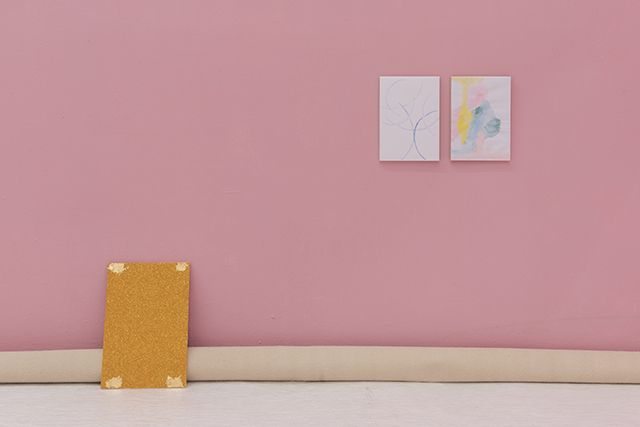
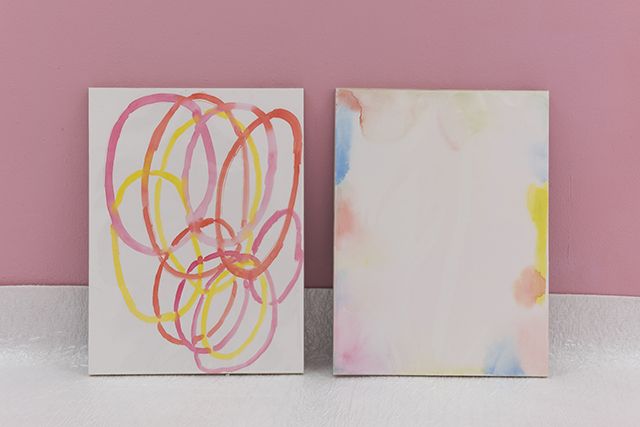
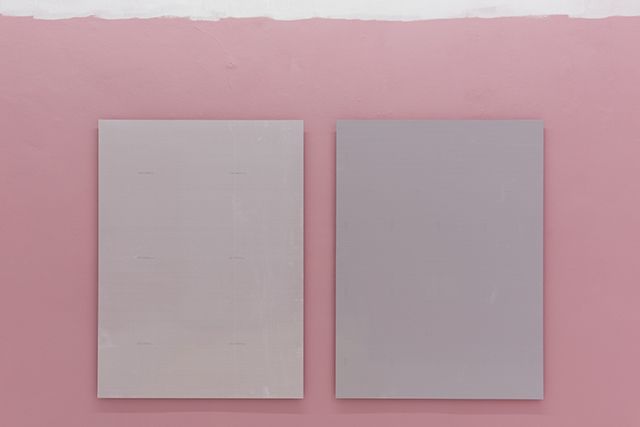
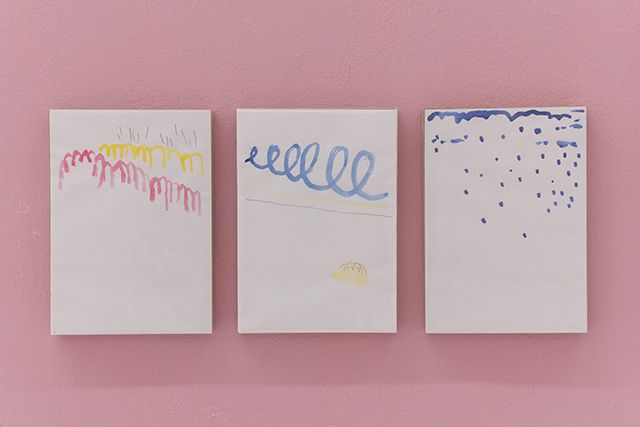
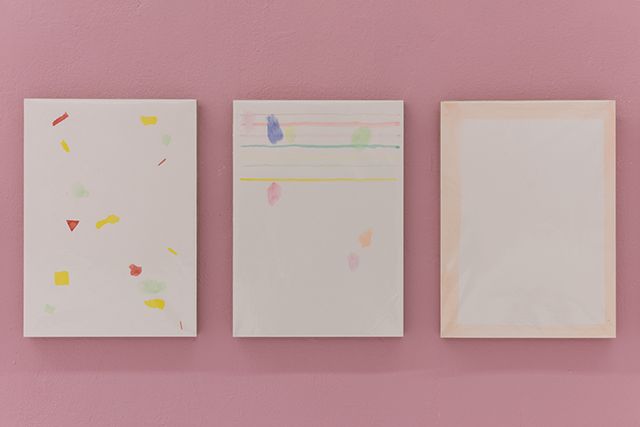
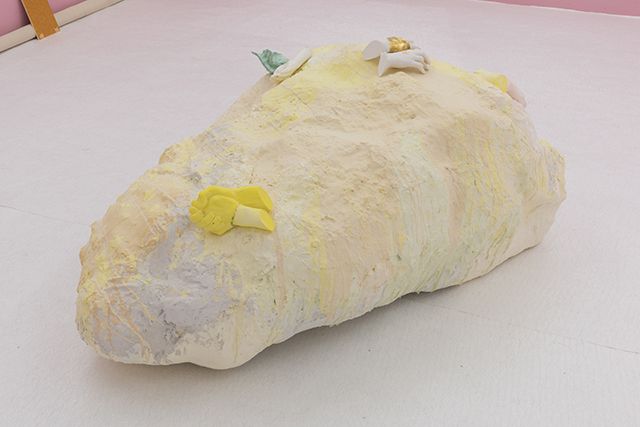
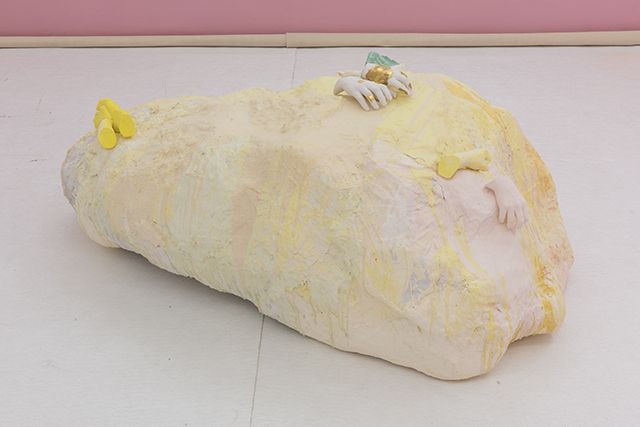
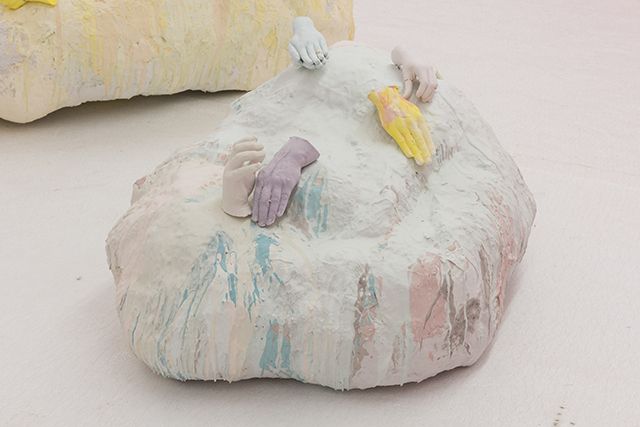
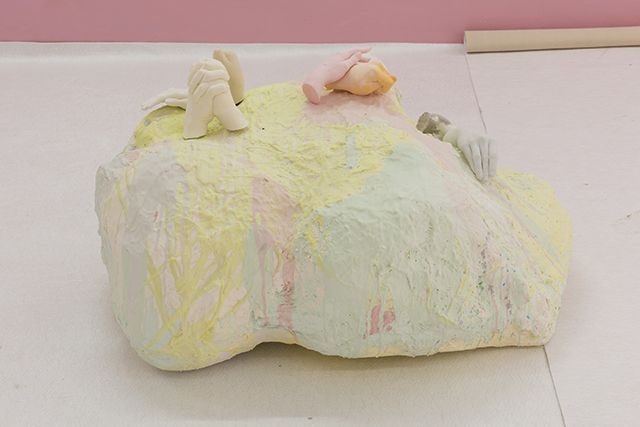
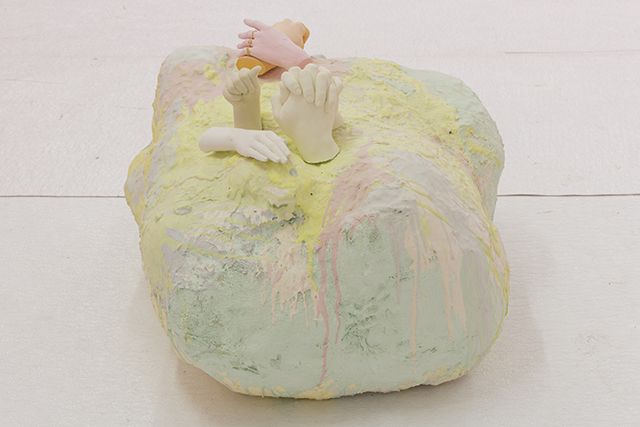
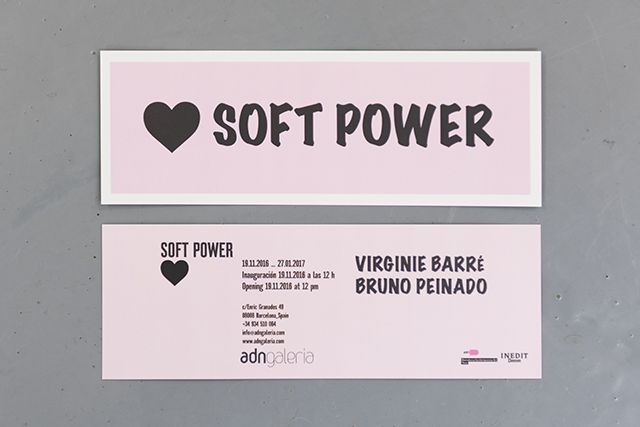
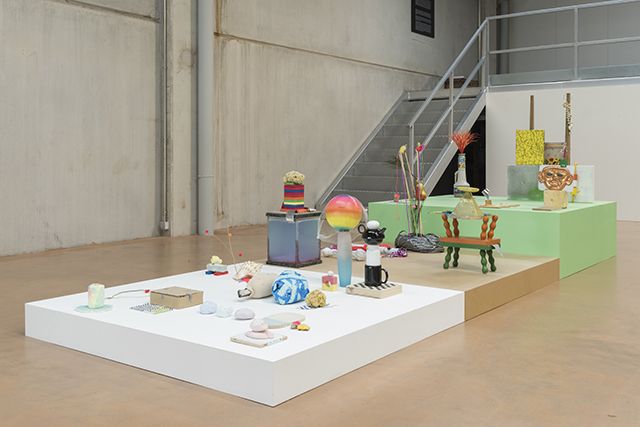
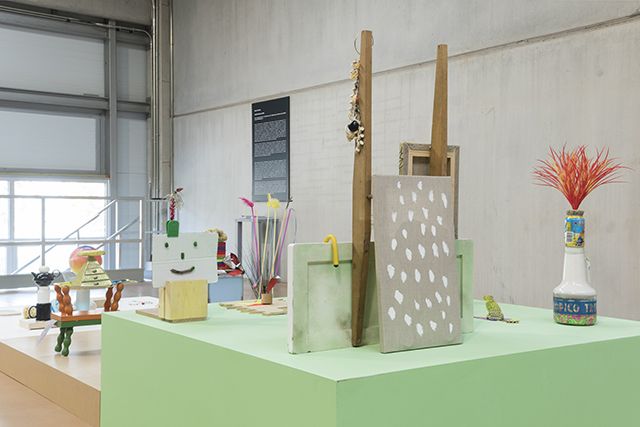
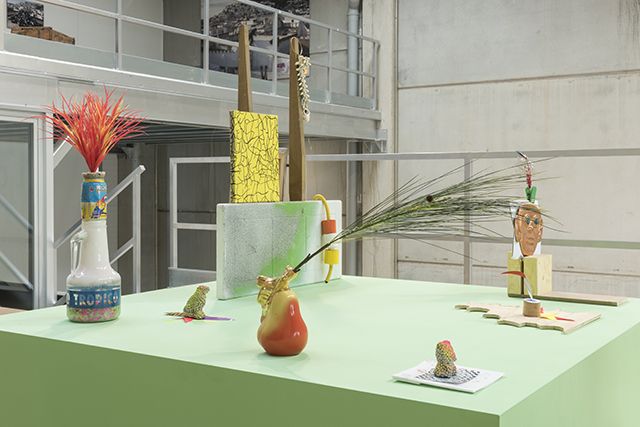
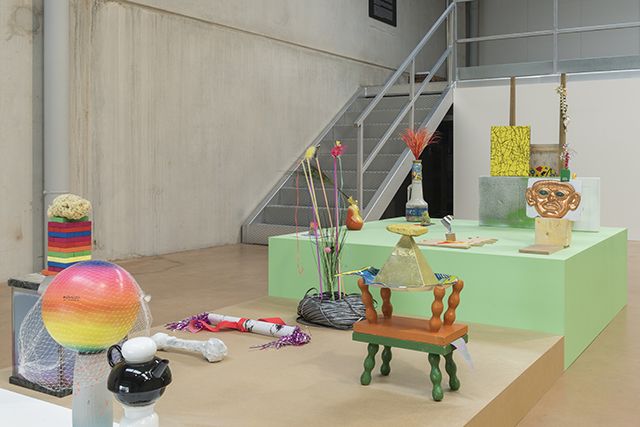
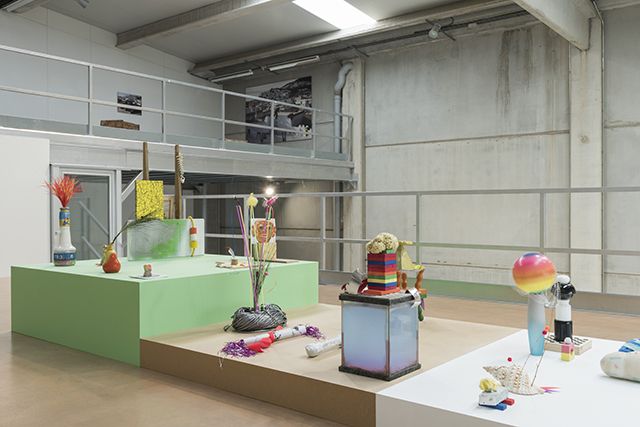
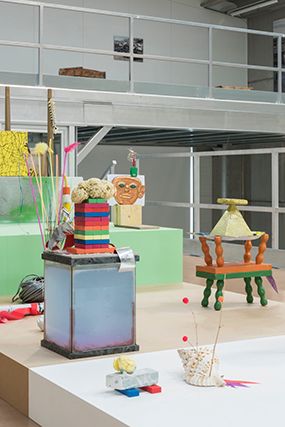
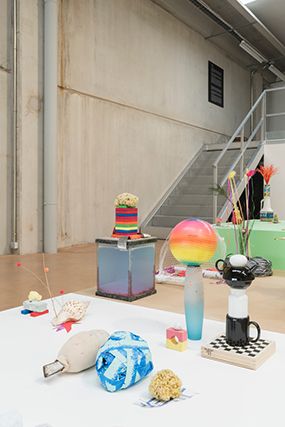
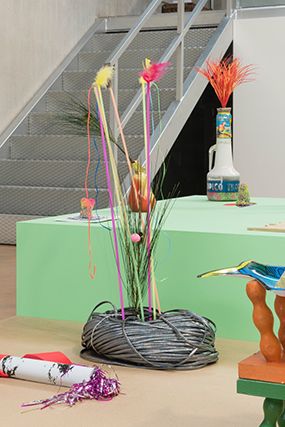
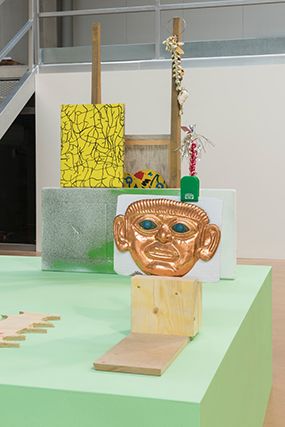
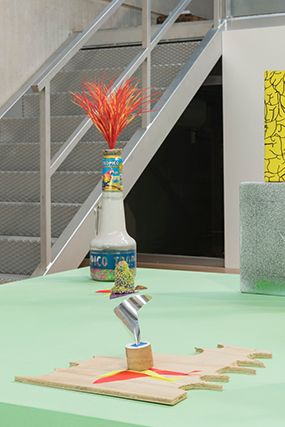
Sans titre, Shack up with... , 2014-2016
Avec Simone et Joséphine Peinado-Barré
«I’d like everybody to be artists, or that nobody was; as we were when we drew boats, ships, windmills, cable cars and landscapes. I’d like to think that the pleasant state that I knew could be recovered in one way or another: that pleasant state in which “design” or art -or the so-called art- was life, and within which life was art. That is, go back to the consciousness or belonging to the world and to the gripping history of the people who are with us»
Ettore Sottsass, Où peut-on essayer ? Casabella n.377. Milan, May 1973.
Texte de présentation de l’exposition (en anglais) :
ADN Galería presents an exhibition by Virginie Barré and Bruno Peinado, that takes as starting point what the artists themselves call “soft power”. The Soft Power is a politics of implication in the facts and experiences that happen in daily life, through tools that are both agents of power and emancipation: intelligence, beauty or creativity, for instance. Those features resist the contemporary status quo, which maintains the old system of professionalization of power. As Franco Berardi (Bifo) asserts, the professionalization of power has contributed to the straining of affective contact. Thus, neither emotions, nor the imagination, or desire are integrated elements of the surplus production.
Experiencing with human desire, the implication and enjoyment of daily life is for Barré and Peinado a form of revolution. As philosopher Henri Lefebvre put it, daily life is the best way of freeing oneself from the impositions of Capitalism, which affects both individual and collective forms of life. Daily life allows the shaking of the base of conventionalisms and everything that blocks creativity. Thus, the work by Barré and Peinado investigates those realms, where childhood, experimentation, games and the unexpected are fundamental pillars in understanding the act of creation in relation to the subject and its living times.
Bruno Peinado’s work mixes and gathers a wide spectrum in the visual arts. In Soft Power, the drawings, a fundamental part in Peinado’s artistic investigation, unfolds, breaks conventions and is transformed into different pictorial experiments.
The intimacy of drawing is displayed as a sort of impermanence that will always be in construction, a research both fundamental and precarious, as it performs in the folds of a mental space. Starting from a particular interest in abstraction and color, Peinado plays with codes that destabilize conventional references. His artistic practice appropriates, homages and investigates the work of artists that have nurtured him: from Supports-surfaces to suprematism, the Californian minimalists to the Color Field painting, or from Matisse to B.M.P.T. His practice is a sort of kaleidoscope ligne de fuite, and plays with abstraction as it does with graphic communication, for instance. The formats, despite varied, always play with verticality, making references to ad panels and to the permanence of painting as a mirror or window to the world. His specific chromatic range follows the sun irradiation: an evocation of the south of France but also California, a big influence of some of Peinado’s referents.
Both at the same time fragile and massive, Hand Me Down Your Love, a landscape of pastel-colored stones evoking the papiers mâchés by artist Franz West, seems unreal. The plaster casts of hands rest on the stones like shells, trying to find balance. A recurrent motif in sculpture, the hand, symbol of identity, is also a creative driver. These hands are the traces of the ones who have participated in the production of the work; people to whom Peinado tributes. This allegory reveals the last months of the artist’s work; every hand being a milestone in the process of elaboration. The pieces affirm his vision of group work and the chance of being part of a community. The hands also refer to the artists that have inspired him and have nourished his work processes.
The pastel colors could also signify passing times, a worn out memory that is yet alive. But they are also an element that the artist uses to question, for instance, the issue of transmission. Given by inheritance, transmission is the basis from which things are built. Nevertheless, Peinado disrupts it by refusing the static idea of the artist identity as a form of art. He also experiments with the dissolution of limits to give chance to a multiplicity. In order to reach that, he also constructs his own imaginary, based on familiarity and daily life, yet also partially forgotten: through games, pleasure, sweetness and experience. His works, such as Virginie Barré’s, also evoke childhood and they count with the collaboration of his circle of friends and daughters. They are inspiring agents that open the windows of artistic potentiality, in which affection and imagination revindicate themselves against imposed adult assumptions.
Thus, both Barré and Peinado present at ADN Galeria a series of works that work as subject representations, almost like an abstract self-portrait. One of the focal points of the artists’ exhibition is the exploration of the ways in which life circulates. The intrigue behind Soft Power lies in its thickness: far from a binary or hierarchic thought, the forms presented whisper more than yell; they modulate the words of a poetic reality that reinvents itself towards a sometimes overly simplified world. Playing with multiple identities, fragile and mobile, both artists try to build new imaginaries from which to explore the power of simplicity and daily life. Those are, in the end, a step towards emancipation and serious creation, as well as an ode to a sincere and free form of creativity.
Bruno Peinado © Adagp, Paris - Photo : Roberto Ruiz